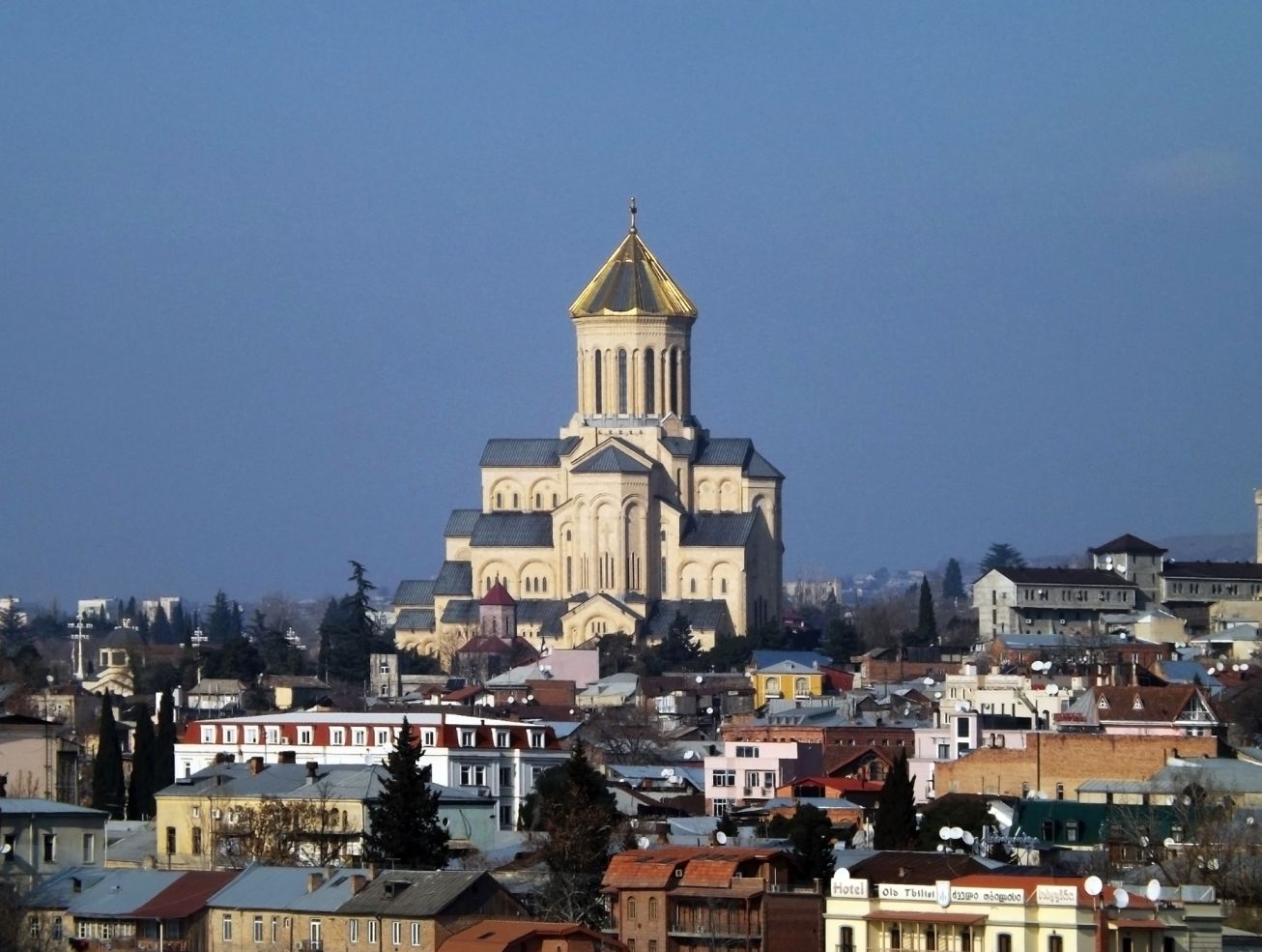History Camp »United or Divided in Diversity? National Identities in Europe«

Orthodox church in Tbilisi | Copyright: Armenak Margarian [CC BV-SA 4.0 (http://creativecommons.org/licenses/by-sa/4.0)], via Wikimedia Commons
| When: 2 to 8 October 2016 |
| Where: Tbilisi, Georgia |
| Who: 25 prize winners from EUSTORY competitions |
| Age: 16 to 19 years old |
| Working language: English |
| Organised by: EUSTORY | |
|
In co-operation with: The Institute for International Cooperation of the German Adult Education Association (DVV International), Project Office Tbilisi, Georgia |
 |
Europe is known for its diversity in culture, traditions and languages. Being Norwegian, Russian, Portuguese or Slovenian: What does it mean to you personally? And how do you define the fine line between national identity and nationalism? After the devastating experience of the Second World War, Western European countries experimented with balancing political interests among each other in different ways. They were trying to create a European unity based on shared values that takes different national backgrounds into account. However, both in the past and today there are different ideas about how to handle national interests and European confraternity.
This year’s History Camp in Tbilisi, Georgia examines European singularities and questions if Europe is united or divided in its diversity and values. National identity plays a key role within this debate. In times of crises the slip towards nationalism seems to be just one financial or refugee crisis away. You will visit places typical for nation building, discuss the meaning of national identity, both in your home country and Georgia, and research: Where do you face the topic of national identity in your everyday lives?
Georgia is a good place due to its geographical position, its diverse ethnicities and religions as well as its history to question the importance of national identity for a country and its people. Since its independence from the Soviet Union in 1991, the country is struggling for national unity and identity. The secessionist conflicts with the provinces Abkhazia and South Ossetia are examples of ethnic independence movements in Georgia. They are also markers for the continuous presence of the country’s past as part of the Soviet Union.
Present the results of your local research, teach each other about your national history and learn about national identity in European history. Compare it with the present situation in Georgia, challenge your own view on Europe and develop a multimedia presentation of your findings. After a week’s research, your joint results and the progress of your work will be presented in a closing ceremony.
How to Apply
Compulsory:
♦ Write a letter of motivation: Please give us your main reasons for wanting to participate in the History Camp in Georgia. Tell us why you are especially interested in this topic (e.g.: What do you want to learn about it? What relevance does the topic have today?). Format: pdf or word document (1– 2 pages)
♦ Information about your competition entry: Please fill in the form about your research paper provided on the History Campus application site.
Optional:
♦ Video: Tell us something about yourself in English. A video may give us a first impression of you and can help us see how you express yourself in English. We don’t need a professional video, so please feel free to record your video with any available means (mobile phone, webcam, etc). Format: Upload your video to youtube.com or vimeo.com and share the link (max. 2 minutes).
